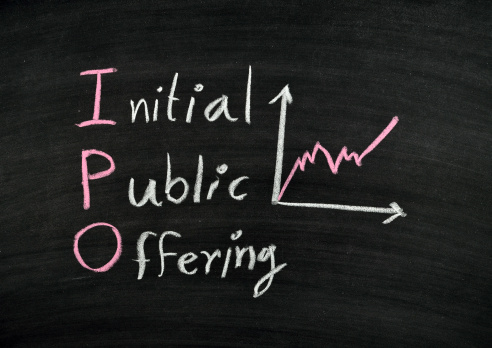London-based financial information services company Markit is hoping to challenge larger competitors Bloomberg and Thomson Reuters Corp. (NYSE: TRI) further by raising fresh capital via an initial public offering in the United States. Investigations by U.S. Department of Justice (DOJ) and European Commission (EC) are not expected to impede its plans.
Markit said in its filing with U.S. Securities and Exchange Commission (SEC) that it plans to raise up to $750 million in an initial public offering of common stock, though that figure probably will change. It did not reveal how many shares it planned to sell or on which exchange it intends to list. Merrill Lynch, Barclays, Citigroup and Credit Suisse are among the IPO’s underwriters.
The company was founded in 2003, and now counts Bank of America Corp. (NYSE: BAC), Deutsche Bank A.G. (NYSE: DB), Goldman Sachs Group Inc. (NYSE: GS) and private equity firm General Atlantic among its major shareholders. The shareholders would be the sellers, according to the filing. Markit does not plan to sell any shares itself.
Chief executive Lance Uggla stands to benefit nicely from the offering as he owns around 15% of Markit.
ALSO READ: Companies With the Best (and Worst) Reputations
Markit reported $947.9 million in revenue last year, which was 10% higher than the previous year, and an operating profit of $230 million, a 2% gain year-over-year. The company said about half of its revenue last year came from U.S. customers. Its more than 3,000 institutional customers include banks, hedge funds and central banks. The company was valued last year at about $5 billion.
Because Markit’s revenue is less than $1 billion, it qualifies as an “emerging growth company” under the JOBS Act. That will allow it to skip certain reporting requirements.
The DOJ and EC investigations concern possible antitrust issues related to Markit’s business in the credit-default swap market. The question is whether banks that control the company colluded to withhold information in order to block the development of exchange trading, which could have crimped their profits from handling client transactions. The 2010 Dodd-Frank Act is opening the swaps market to competition so that it is easier for new users to participate. Markit said in the SEC filing that considers it “remote” that any fine will result from the DOJ probe. However, the EC could ask for monetary damages.
ALSO READ: Wells Fargo Tops List of Most Valuable Banking Brands
Are You Still Paying With a Debit Card?
The average American spends $17,274 on debit cards a year, and it’s a HUGE mistake. First, debit cards don’t have the same fraud protections as credit cards. Once your money is gone, it’s gone. But more importantly you can actually get something back from this spending every time you swipe.
Issuers are handing out wild bonuses right now. With some you can earn up to 5% back on every purchase. That’s like getting a 5% discount on everything you buy!
Our top pick is kind of hard to imagine. Not only does it pay up to 5% back, it also includes a $200 cash back reward in the first six months, a 0% intro APR, and…. $0 annual fee. It’s quite literally free money for any one that uses a card regularly. Click here to learn more!
Flywheel Publishing has partnered with CardRatings to provide coverage of credit card products. Flywheel Publishing and CardRatings may receive a commission from card issuers.
Thank you for reading! Have some feedback for us?
Contact the 24/7 Wall St. editorial team.


